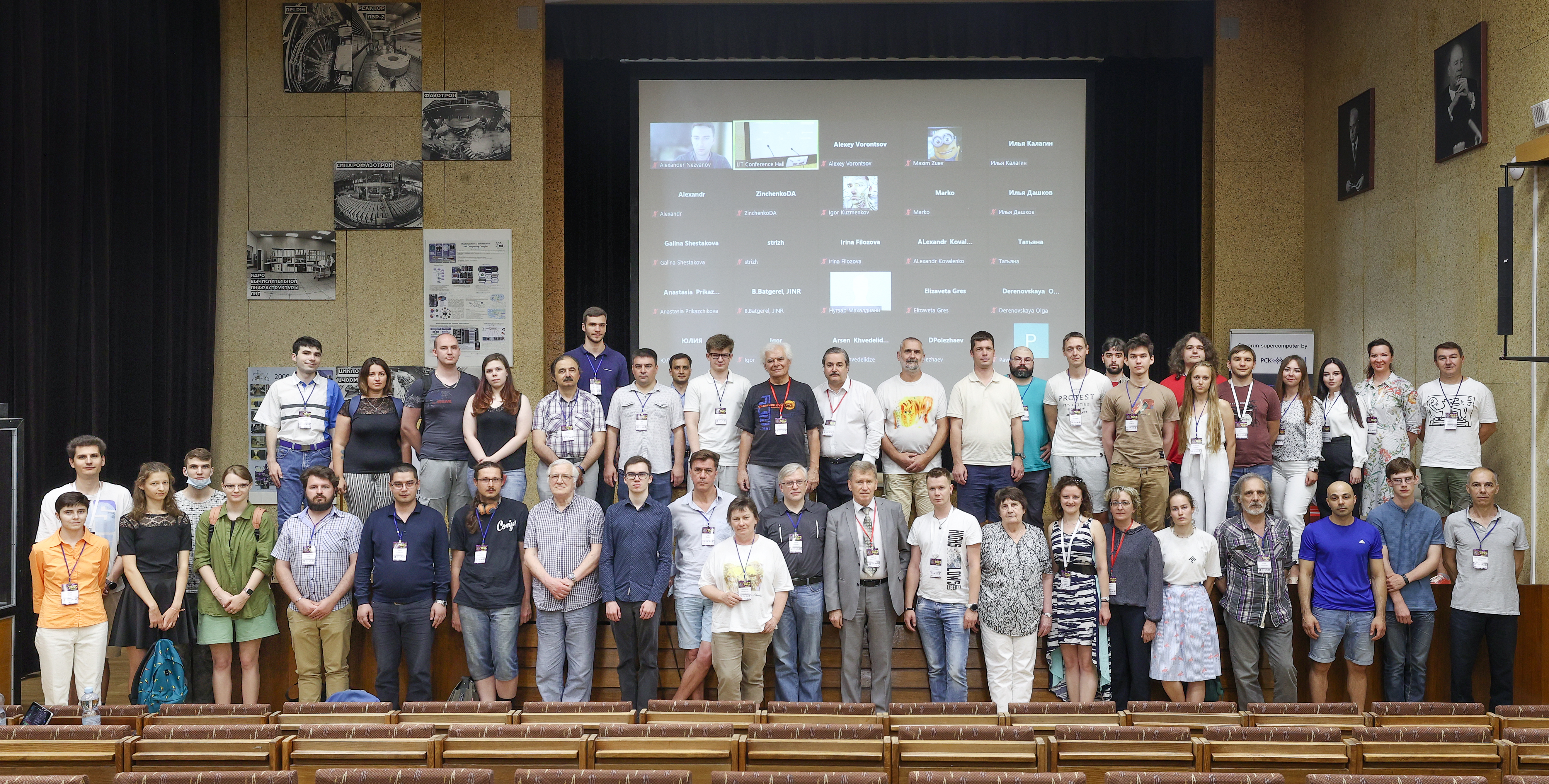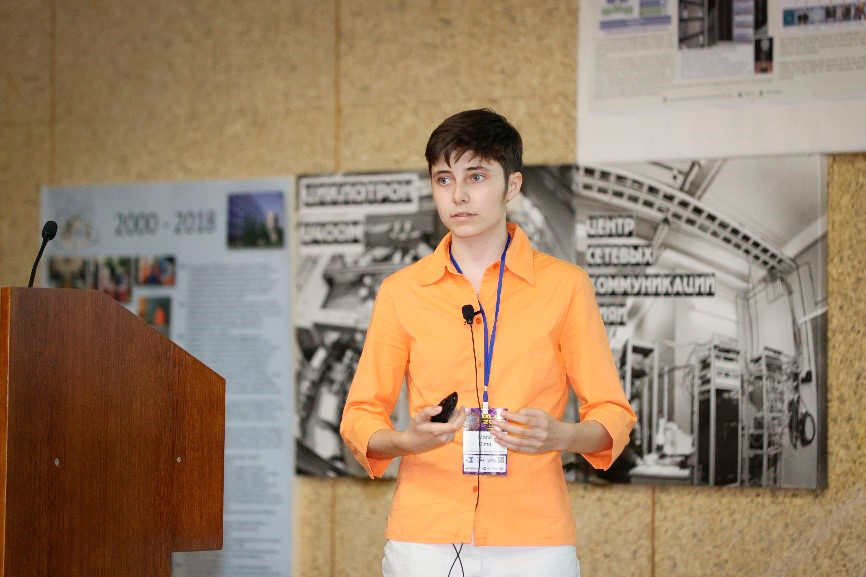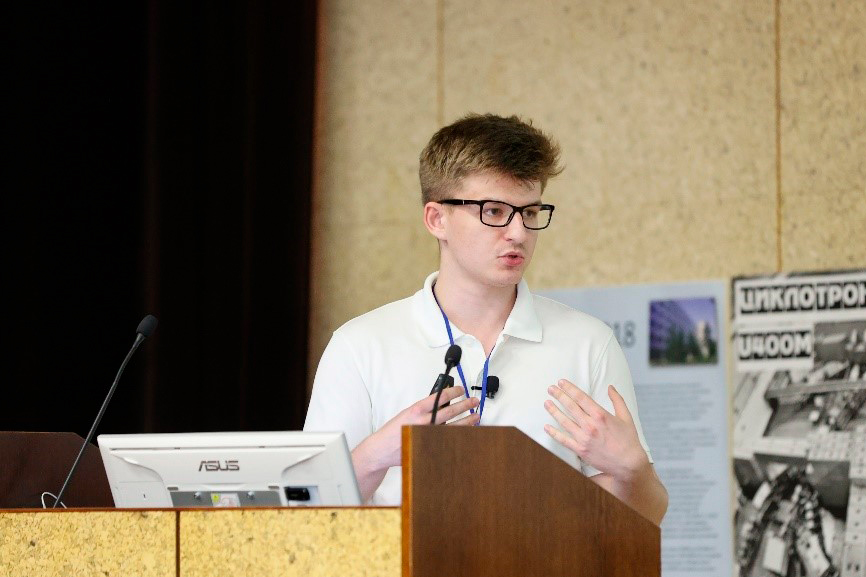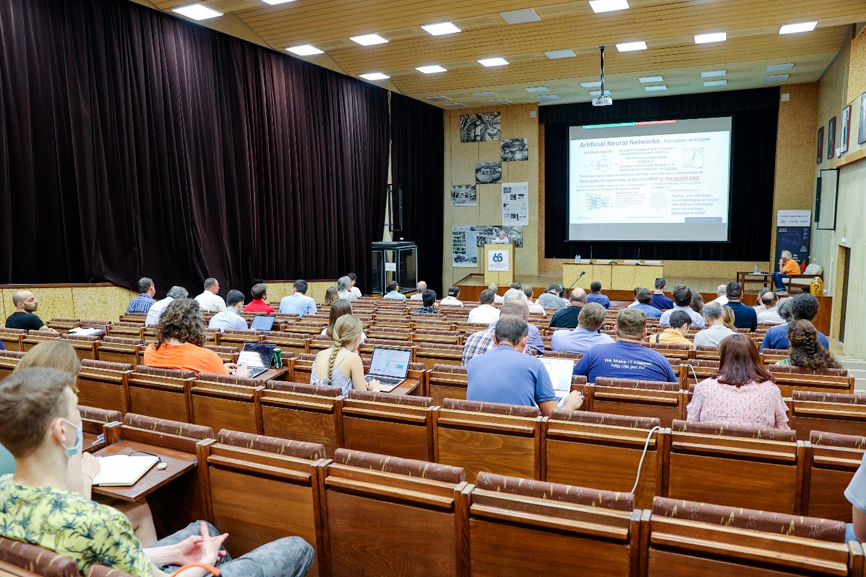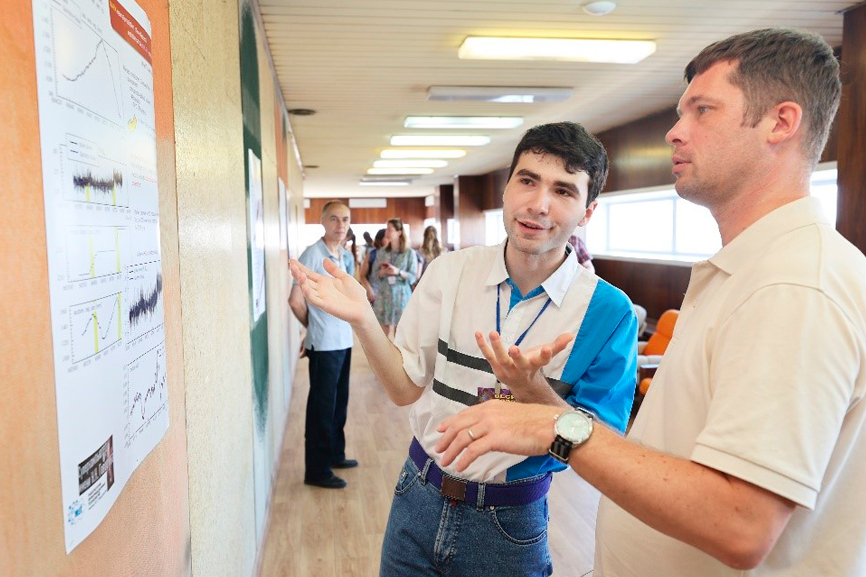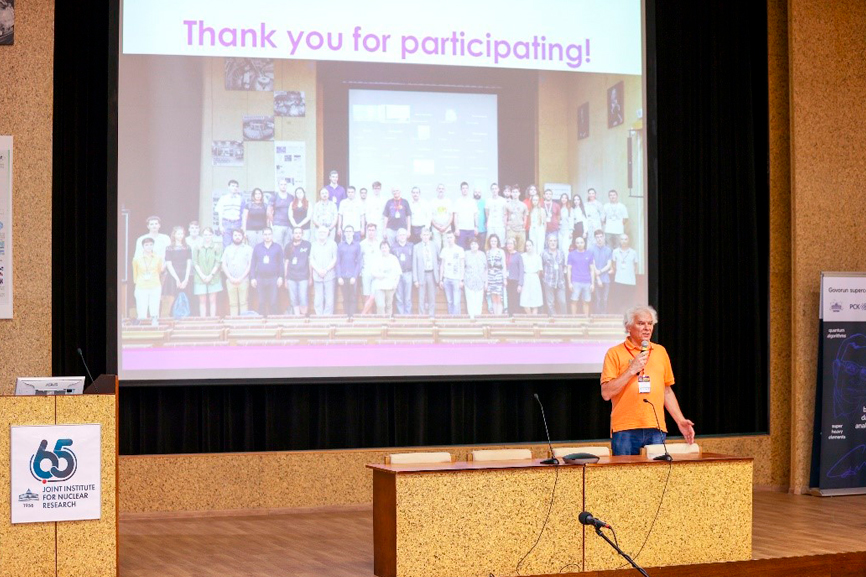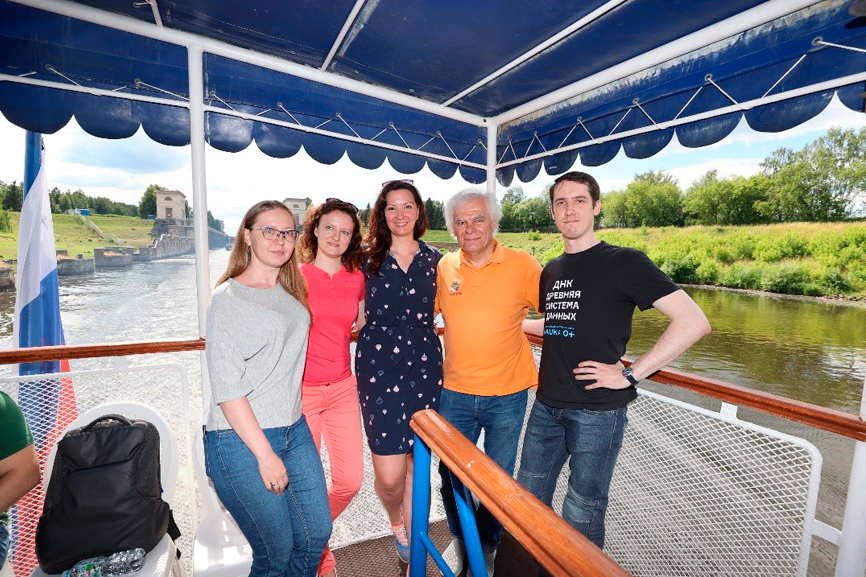Milestones of international workshop DLCP-2022
News, 13 July 2022
On 6 – 8 July 2022, the Meshcheryakov Laboratory of Information Technologies hosted the sixth international workshop on Deep Learning in Computational Physics (DLCP-2022). The workshop was organized together with Skobeltsyn Institute of Nuclear Physics of Lomonosov Moscow State University (SINP MSU).
The workshop primarily focused on the use of machine learning in particle astrophysics and high-energy physics, but was not limited to these areas. Both modern machine learning methods in general and their application in natural sciences and education were also discussed.
More than 130 scientists (90 – in person, over 40 – remotely) from research centers of India, Kazakhstan, Mongolia, Poland, Romania, Serbia, Slovakia, Turkey, Uzbekistan took part in the workshop. Russia was represented by participants from 15 universities and research centers. The conference was organized in five sessions, one of which was poster. 7 plenary and 34 sessional talks, as well as 7 posters, were presented.
MLIT Director Vladimir Korenkov opened the conference with a report on the IT ecosystem being developed at the Laboratory. It comprises a platform for high-performance computing, data acquisition and storage, Big Data analysis using artificial intelligence, in particular, deep learning. He also highlighted that there existed a multitude of tasks related to machine and deep learning within computing for different studies underway at JINR.
Gennady Ososkov, who is the father of applying machine learning methods to JINR tasks, in particular, in high-energy physics, delivered a highly interesting talk on the history of the formation of approaches for solving tasks using artificial neural networks and their application in the tasks of charged particle trajectory reconstruction in high-energy physics experiments, of nuclear reaction data analysis, of the prediction of liquid nitrogen flow rate during the reactor’s operation, of plant disease detection, etc.
Representatives of SINP MSU spoke about their projects in which machine learning methods are actively applied. Lev Dudko talked about the history and major applications of deep neural networks in the CMS experiment at the Large Hadron Collider. Leonid Kuzmichev delivered an overview report on the TAIGA Astrophysical Complex, and Workshop Co-Chairman Alexander Kryukov dwelled upon machine learning methods for data analysis within the TAIGA experiment, including for event simulation, particle identification and gamma-energy spectrum reconstruction.
The report of Oksana Streltsova (MLIT) was devoted to the information system (IS) being developed jointly with LRB colleagues for the analysis of data from radiobiological studies underway at JINR. The algorithmic block of the IS is based on the methods of machine and deep learning, as well as of computer vision.
Maxim Zuev (MLIT) spoke about the ML/DL/HPC ecosystem deployed on the HybriLIT heterogeneous platform, which provides new opportunities for applied research. The talk by A.V. Ilyina on the analytical platform for labor market analysis evoked great interest among the audience.
A number of plenary talks were made by representatives of the IT industry, who were sponsors of the workshop. Among them were Softline, RSC Group, IT Cost. Their reports provided an IT development analysis and presented the transition to Russian IT products.
On the last day of the workshop, there were a boat trip along the Volga and Dubna rivers and a barbecue in Ratmino.
At the closing of the workshop, words of gratitude for the high level of holding the workshop were expressed to the organizing committee.
The presentations of the reports and photos are available on dlcp2022.jinr.ru. Selected proceedings of the workshop will be published in the Numerical Methods and Programming and Computer Research and Modeling journals.
